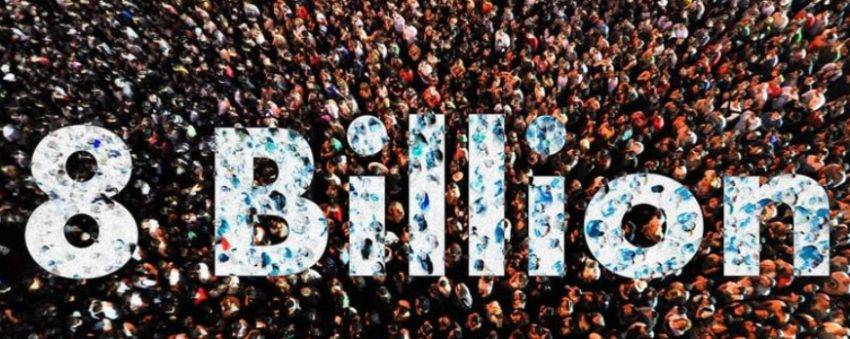On Tuesday, November 15, 2022, the total number of people on Earth reached a historic mark of 8 billion. But now there is a general tension and a period of crisis. Wars, ecology, diseases, as well as modern concepts of the family, slightly slow down the growth rate of the population on the planet. Also, such a picture refutes the erroneous, but popular theory of some scientist about overpopulation.
The eight billionth person came to the world: what explains the new milestone
“This milestone is an opportunity to celebrate diversity and achievement, given humanity’s shared responsibility for the planet,” said UN Secretary-General António Guterres.
This unprecedented growth is due to the gradual increase in human life due to improvements in healthcare, nutrition, personal care and medicine. But the contribution of different regions and states to the increase in the number varies significantly.
Countries with high birth rates typically have the lowest per capita income. Thus, global population growth is increasingly concentrated over time in the world’s poorest countries, most of which are in sub-Saharan Africa.
According to UN forecasts, as early as 2023, India will overtake China and become the most populous country. This country’s population growth is expected to continue until around 2050, while China’s population will continue to decline.
Is overpopulation threatening the Earth?
Talk about overpopulation appeared in the second half of the 18th century, when the English scientist Thomas Robert Malthus formulated the foundations of a theory that later became known as Malthusianism. The researcher believed that the population is growing exponentially (doubling every quarter of a century without wars and diseases), and the resources of the Earth are limited. From this it followed that they would no longer be missed by all people.
Real empirical studies have shown that Malthus, relying on the historical data of that time, made two mistakes at once. First, he did not take into account the possibility of exponential growth in production, including food, associated with technological progress. And secondly, Malthusianism could not foresee a natural change in population growth rates with the development of countries.
It should also be noted that Malthus’s theory arose after the population growth that occurred in the late 1960s. Then the growth rate reached a record high value – 2.09%. Although the population continues to grow, the rate at which these changes occur has slowed down significantly. For example, in 2022, according to estimates, it is 0.84%.
How wars, ecology and diseases in the modern world affect the population
Guterres noted that only a handful of billionaires have as much wealth as the poorest half of the world, while the richest one percent receive a fifth of the world’s income. Citizens of the richest countries can expect to live 30 years longer than those of the poorest.
The decrease in population growth is associated with a decrease in the birth rate, an increase in the availability of contraceptives and the development of the economy of states. Raising the level of education, especially among girls, and increasing employment opportunities for women have played a key role in these processes.
Speaking of the accelerating climate crisis and the uneven recovery from COVID, Guterres noted that as the world has become richer and healthier in recent decades, these inequalities have also increased.
“We are heading straight for a climate catastrophe, and emissions and temperatures continue to rise. Floods, hurricanes and droughts are devastating countries,” said the UN Secretary General.
Meanwhile, the war in Ukraine continues to kill people, fuel ongoing food, energy and financial crises, hitting emerging economies hardest as the Global South grapples with massive debt, rising poverty and hunger, and the growing effects of the climate crisis.
Guterres sees the Black Sea Grain Initiative as an important way to mitigate the global food crisis, alleviate hunger and save lives, “relieve hunger and save lives.” But the risks remain. It is not known how those who have power and weapons behave. Indeed, even last year, few people believed that in our time, in a civilized country, a war could begin.
And now there is a world of 8 billion people filled with tension and mistrust, crisis and conflict.
Population growth rate
For the first time, the billionth population of mankind reached only in the last quarter of the second millennium of our era. It took 12 years to grow from 7 billion to 8 billion. And to reach 9 billion, the world population will need about 15 years – by 2037, that is, the overall growth rate of the world population is slowing down.
The UN believes that the world’s population will peak at 10.4 billion by 2080, after which, by the end of the century, the population will stabilize at this level with possible slight deviations.


